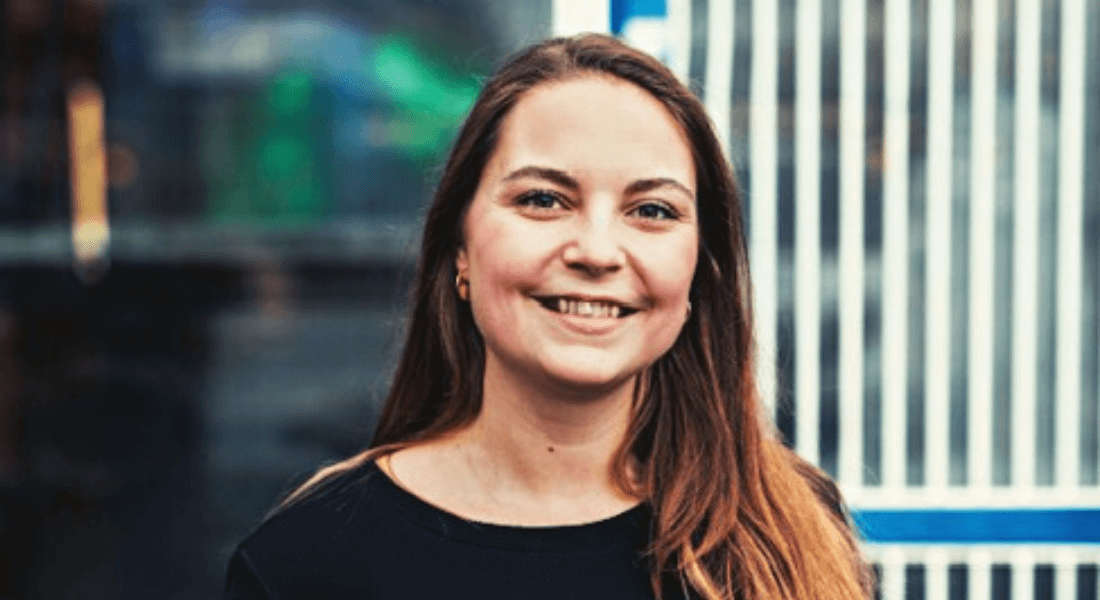Read more and apply here.
Emily, Quality consultant at Coop Denmark

Meet Emily, Integrated Food Studies alumn, and read about her career path since she earned her master's degree in 2020. Own photo
"I use what I learned at the Integrated Food Studies degree every single day."
What do you do?
I am part of the quality department at Coop Denmark where we work to ensure food safety in retail. In my position, I specifically work with implementing electronic own-check programs in Coops +1000 retail stores, supporting the change process and answering questions relating to food safety.
Part of my job is also to make instruction manuals both in written form and video content, as well as to further develop the program to best support the many different and complex aspects of food safety and quality.
How did you end up in your current job?
During my studies I worked different jobs, all related to food in some way. Before I started my PBA, I spend half a year at Suhrs Højskole learning and having fun with cooking. While studying I worked at Frugtformidlingen, Suhrs Højskole and Grød before I started in a student position in Kitchen Collective. Right before graduating from Integrated Food Studies, I started working full time in Kitchen Collective where I stayed until I got the job at Coop in June 2021.
I found that network and willingness to try out different things can truly take you places.
I always enjoyed working while studying. I was never very conscious about which way to go and never had a career plan of sorts, but I found that network and willingness to try out different things can truly take you places. I gained invaluable experience and met some very inspiring people in all the jobs.
Which academic skills do you use most in your work life?
I use what I learned at the Integrated Food Studies degree every single day. Working in a big corporation, everything from stakeholder analysis to design thinking and communication strategies are key skills. I have a broad knowledge about food culture, quality and food systems which is a strong foundation for succeeding in my tasks. I believe that working in groups during my studies enables me to work efficiently in teams and in projects.
I believe that working in groups during my studies enables me to work efficiently in teams and in projects.
Another thing that really struck me after graduating and entering the job market is to never underestimate how trained you are as a student or graduate of Integrated Food Studies in processing complex information and communicating this in different ways to different target groups.
I personally find that I am also very comfortable with having my work assessed by my colleagues and have no fear of public speaking (thanks to oral exams and presentations). These might seem like small matters, but they mean a lot in daily work life.
A good advice: What do you want to tell a prospective student?
My advice would be to engage in as many activities in the study environment as possible and appreciate being surrounded by people who share your interest in the world of food. It’s over before you know it.
I cannot recommend applying for a student job enough.
Unless you continue within academia, this might be the only time in your life you have the opportunity and time to immerse yourself in a field that way. I cannot recommend applying for a student job enough. You will gain invaluable network and experience and, for me at least, I learned a lot from putting theory into practice along the way.
Apply and read more about the international MSc degree Integrated Food Studies.
